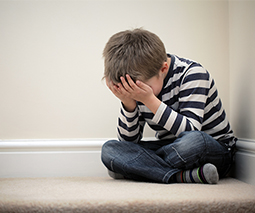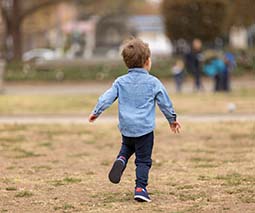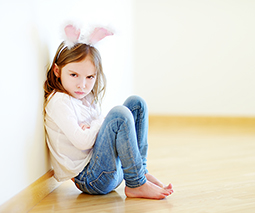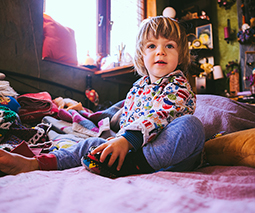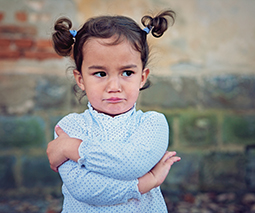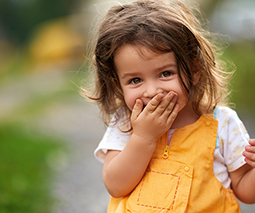How to help an “out of control” toddler without losing your cool
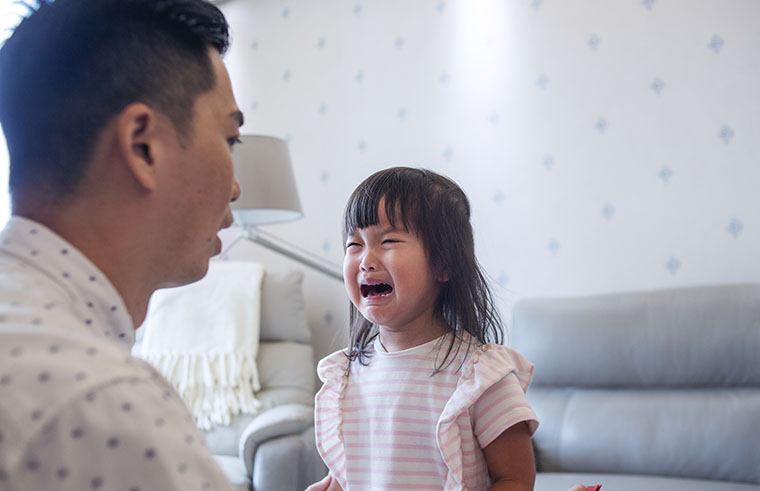
All children can behave in ways that are … not adorable. When behaviour gets big, it can be exhausting and maddening for even the calmest of parents. There’s a good reason for this. Children create their distress in their important big people as a way to share the emotional load when that load gets too heavy.
In the same way children weren’t meant to carry big physical loads on their own, they also weren’t meant to carry big emotional loads. Big feelings and behaviour are a call to us for support to help them with that emotional load.
‘Big behaviour’ is a signal for a need
Children communicate through behaviour and behind all big behaviour ,there will always be a valid need. The need might be for safety, connection, sleep, food, power and influence, or space to do their own thing. These are needs we all have, but children are still developing the capacity to meet those needs in ways that aren’t as disruptive. Until then, their distress will often be the only way they are able to signal to us in the moment that they need our support.
Big feelings, and the big behaviour that comes from big feelings, are a sign of a distressed nervous system. Think of this like a burning building. The behaviour is the smoke. The fire is a distressed nervous system. It can be so tempting to respond directly to the behaviour (the smoke), but by doing this, we ignore the fire. Their behaviour and feelings in that moment are a call for us to help that distressed brain and body find the way home, back to calm.
But how do we help them?
How we can help
The most powerful language for any nervous system is another nervous system. They will catch our distress (as we will catch theirs) but they will also catch our calm.
It can be tempting to move them to independence on this too quickly and insist they self-regulate, but it just doesn’t work this way. Children can only learn to self-regulate with lots (and lots and lots) of experience co-regulating.
This isn’t something that can be taught. It’s something that has to be experienced over and over. It’s like so many things – driving a car, playing the piano – we can talk all we want about ‘how’ but it’s not until we ‘do’ over and over that we get better at it.
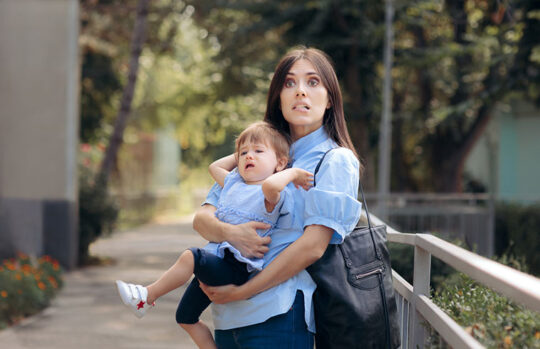
Self-regulation works the same way. It’s not until children have repeated experiences with an adult bringing them back to calm, that they develop the vital pathways in the brain to come back to calm on their own.
Our self-regulation is the circuit breaker
An important part of this is making sure we are guiding that nervous system with tender, gentle hands and a steady heart. This is where our own self-regulation becomes important.
Our nervous systems speak to each other every moment of every day. When our children are distressed, we will start to feel that distress. It becomes a loop. We feel what they feel, they feel what we feel. Our own capacity to self-regulate is the circuit breaker.
This can be so tough, but it can happen in micro-breaks. A few strong steady breaths can calm our own nervous system, which we can then use to calm theirs. Breathe, and be with. It’s that simple, but so tough to do some days.
When they come back to calm, then have those transformational chats: “What happened?”, “What can make it easier next time?”, “Things are a bit of mess right now. How can you put things right? You’re such a great kid. I know you’ll have some really good ideas about how to do that. Do you need my help?”
It’s not about perfection
But we have to be radically kind with ourselves too. It takes a steady heart to soothe the heart of another, and being that steady heart can be tough some days.
Parenting is hard, and days will be hard, and on many of those days we’ll feel the rawness and realness of it all. We’ll say things we shouldn’t say and do things we shouldn’t do. We’re human. Let’s not put pressure on our children to be perfect by pretending that we are. Instead, let’s repair the ruptures as soon as we can, and bathe them abundantly in love and the warmth of us.
It’s not about perfection, it’s about consistency and honesty, and the way we respond to them the most.
Karen Young is a Child Development Expert who has worked in private practice and in educational and organisational settings. She has extensive experience in educating parents and the facilitation of personal growth groups. You can contact her at Hey Sigmund.
 Need some support to be the best parent you can be? Our Parent School parent coaching experts can help. Click to find out more or book a one-on-one session.
Need some support to be the best parent you can be? Our Parent School parent coaching experts can help. Click to find out more or book a one-on-one session.
